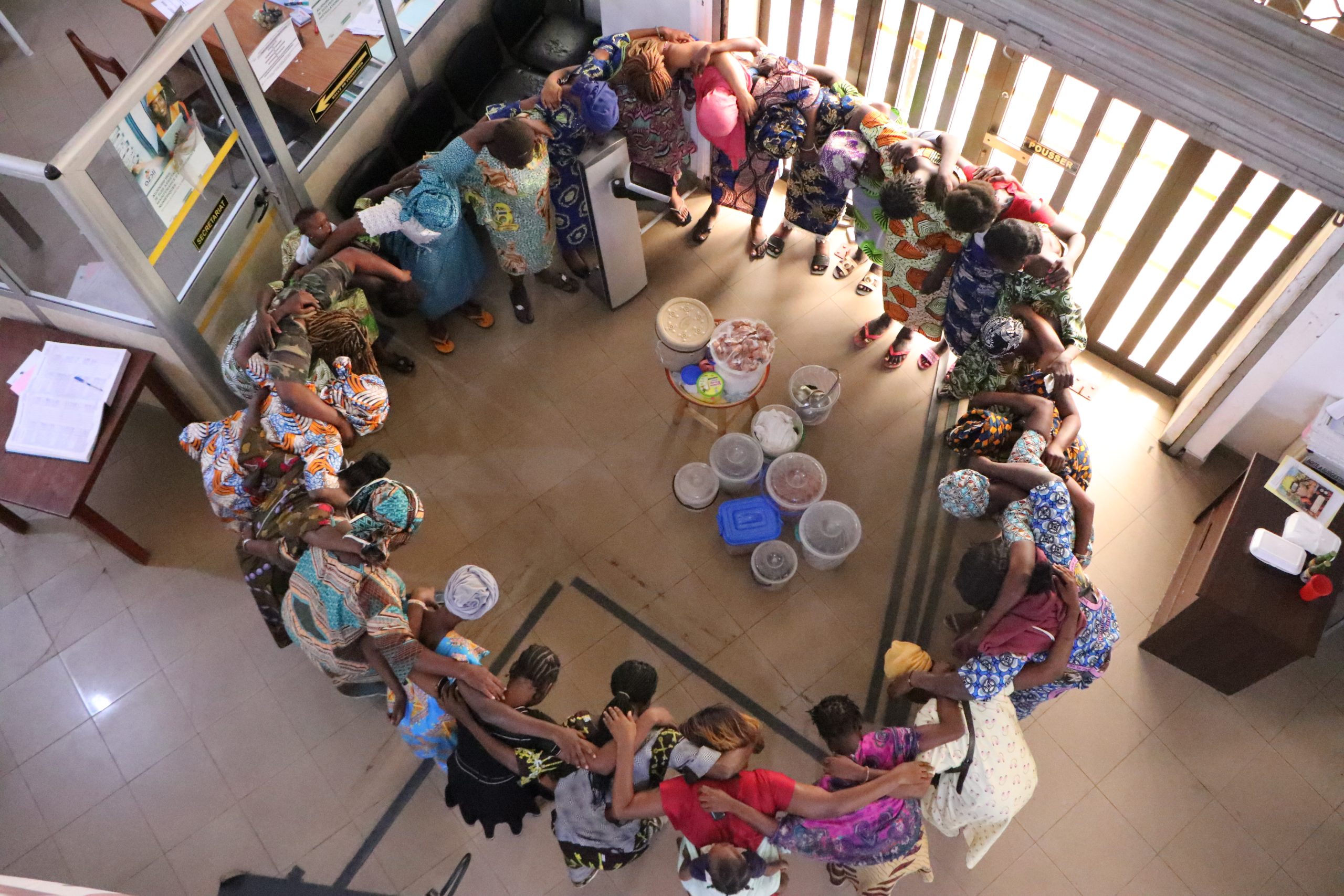A Program of Hope for Abuse Survivors in Benin
Published on July 31, 2024
By Terry Redding, Communications Lead, MOMENTUM Integrated Health Resilience
Photos by Terry Redding and Rosine A. Kededji, KM and Communication Officer, CARE International/Benin
Mary speaks softly but steadily in her native Fon language, as she gently rubs her infant son’s hands while he naps on her lap. It is one of the first times she has been able to tell her story of domestic abuse. For 20 minutes, despite shedding some tears, she relates without pause how she came to participate in a women’s economic empowerment program supported by MOMENTUM Integrated Health Resilience in Benin.
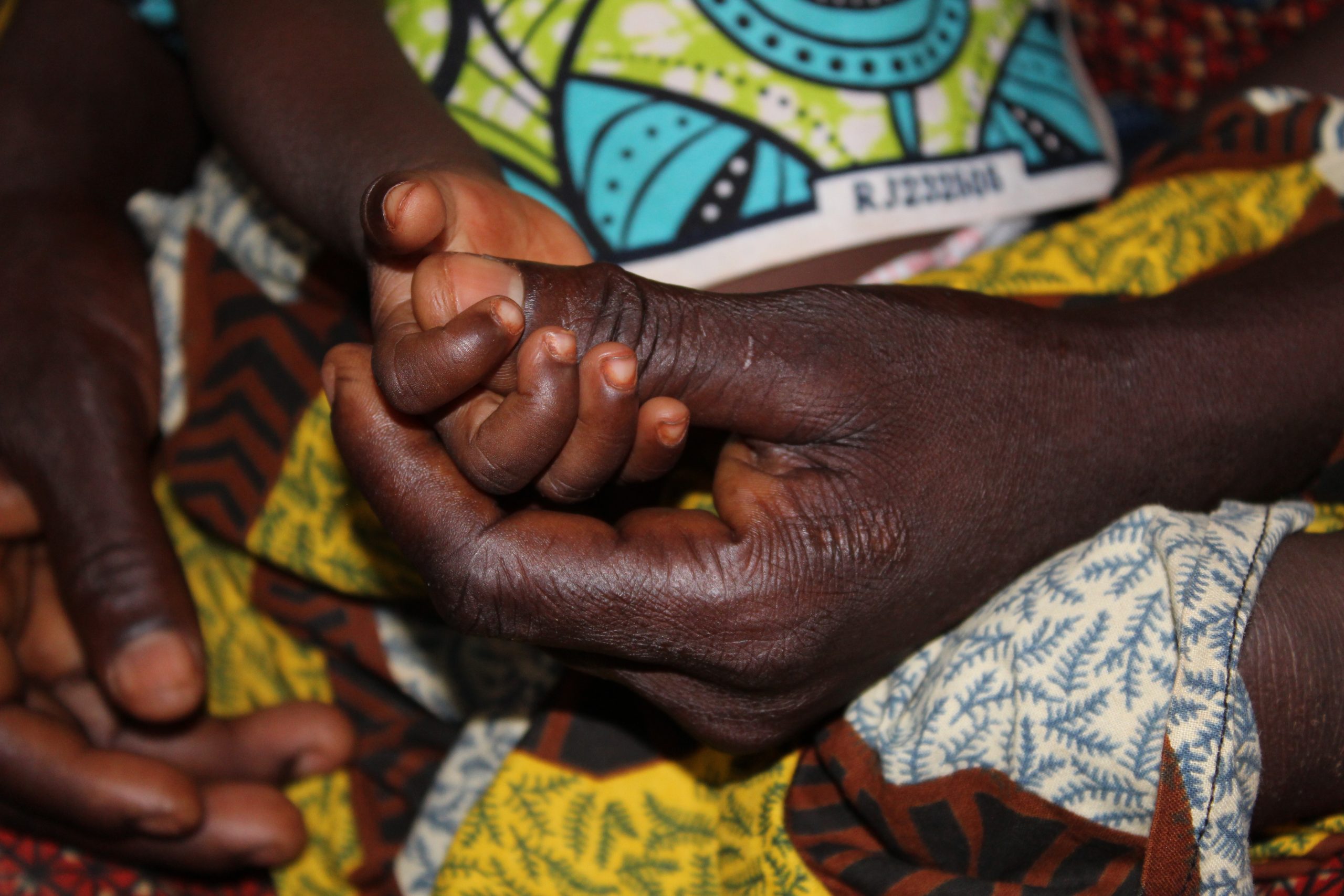
To protect Mary’s privacy and security, her real name and photo are not used here, nor are key details of her story. But it is the job of Georgine Aoulou, the Social Assistant here at the Zou Departmental Hospital Center in Abomey, in this lush agricultural southern region of Benin, to welcome women like Mary into the program. It is designed to support women as they are taught life skills and develop various income-generating activities.
MOMENTUM works with partner organizations in Benin to bring gender issues into the public eye and ultimately strengthen health resilience in fragile settings by improving the role and contributions of women to their own and their families’ health. The economic empowerment of women gives them knowledge, experiences, and freedom to address their health and that of their children.
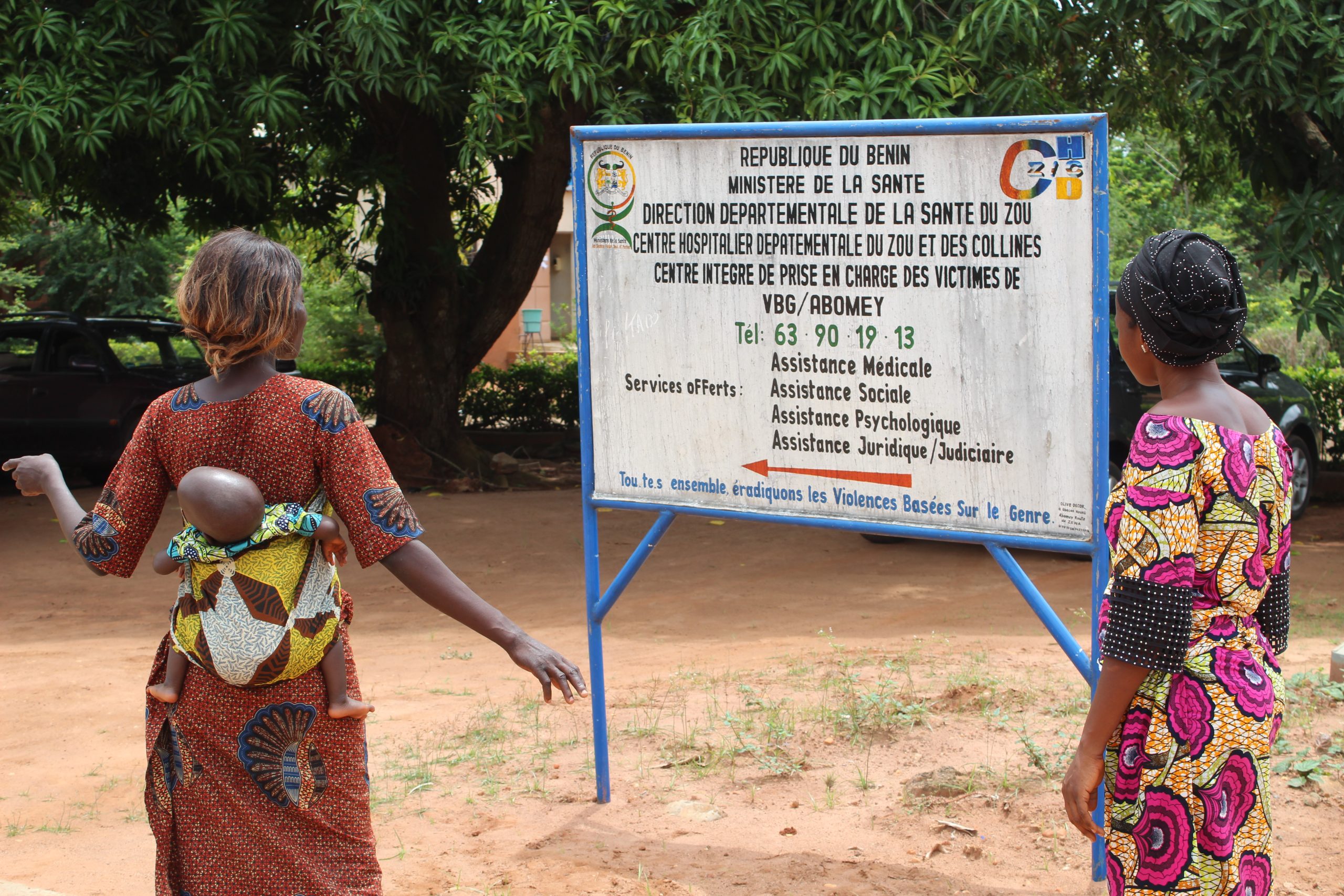
“These women mostly lack self-confidence,” since they have had to rely most of their lives on their families, male partners, or in-laws, says Georgine, a no-nonsense woman with a ready smile. “This training program will help them to be economically empowered. And it will benefit the community because women are the main actors for the well-being of their families.”
The program was just getting underway in the first months of 2024 at three sites around Benin, each focusing on 50 gender-based violence (GBV) survivors. The women will be trained in a particular skill of their choosing, such as cooking, sewing, or hairdressing—often skills they were already familiar with—with the goal of creating their own small, independent businesses. They will also receive basic equipment and supplies to start the business, followed by ongoing mentoring, counseling, and emotional support, and basic life skills like handling government bureaucracy, navigating health care for themselves and their children, and managing a household. There was no problem in finding participants from among those already engaged in other programming at the three sites, since such female empowerment programs are not widely available.
During a group interview with participants at an urban site in the coastal city of Cotonou, one theme became clear: Most participants were mothers, and they were eager to learn how to better provide and care for their children, and to move their own lives forward. During their initial meetings with program coordinators, the women said they were learning how to be more self-aware, how to make friends and support other women, and how to be activists in the community against social norms that do not acknowledge violence against women.
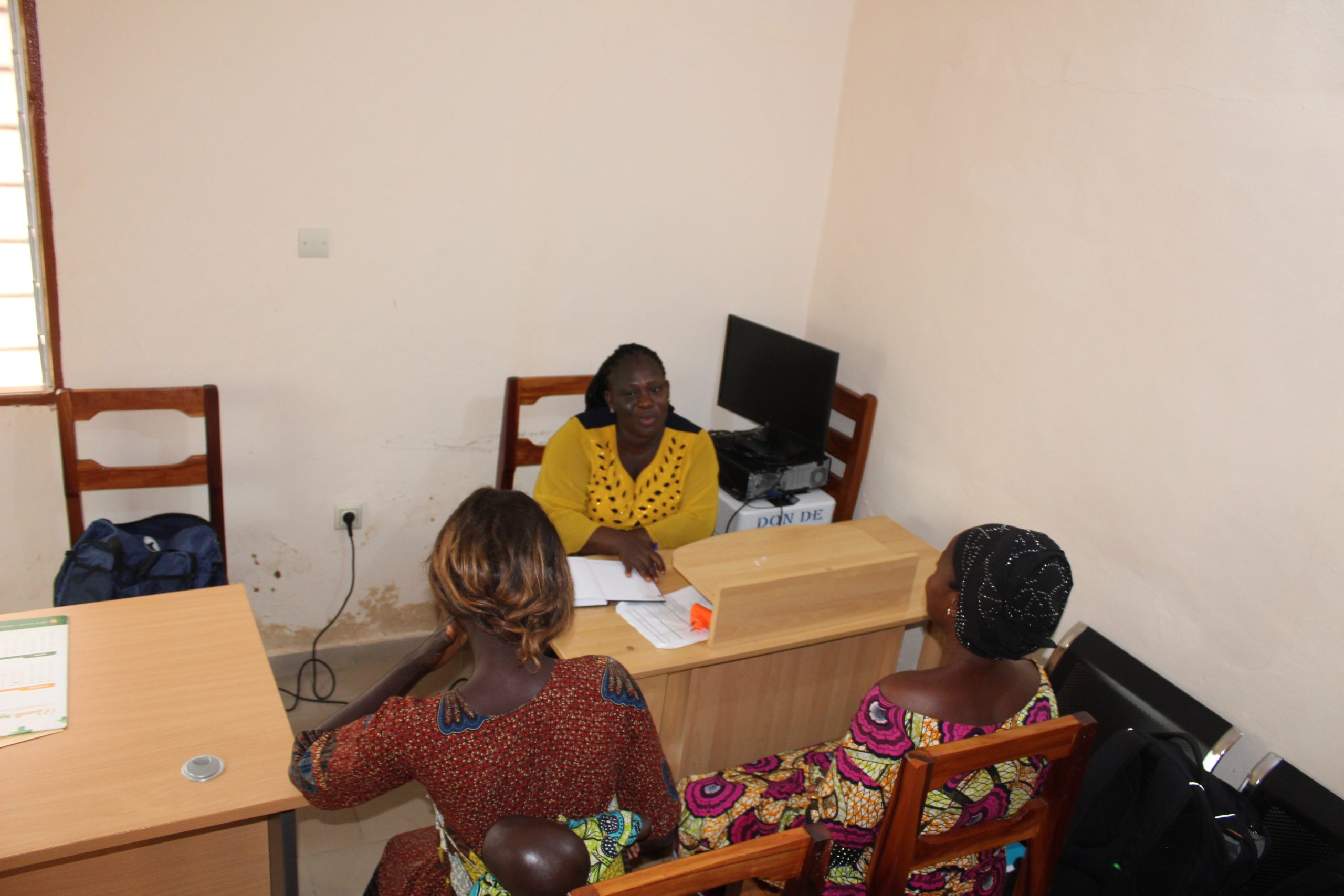
“It is the first time this center has had a program that supports economic development for women,” says Georgine. “When we listen to them (describe their situations), it is like a release and relief for them. They have expectations of well-being. This represents hope for them.”
The program will also feature a community outreach component that will bring to light the issue of GBV. “We plan to address the causes of violence, to help sensitize the community about GBV, and to denounce it. There are (productive) ways to do it, and to show that guidance is available for both men and women who might need it,” explains Georgine.
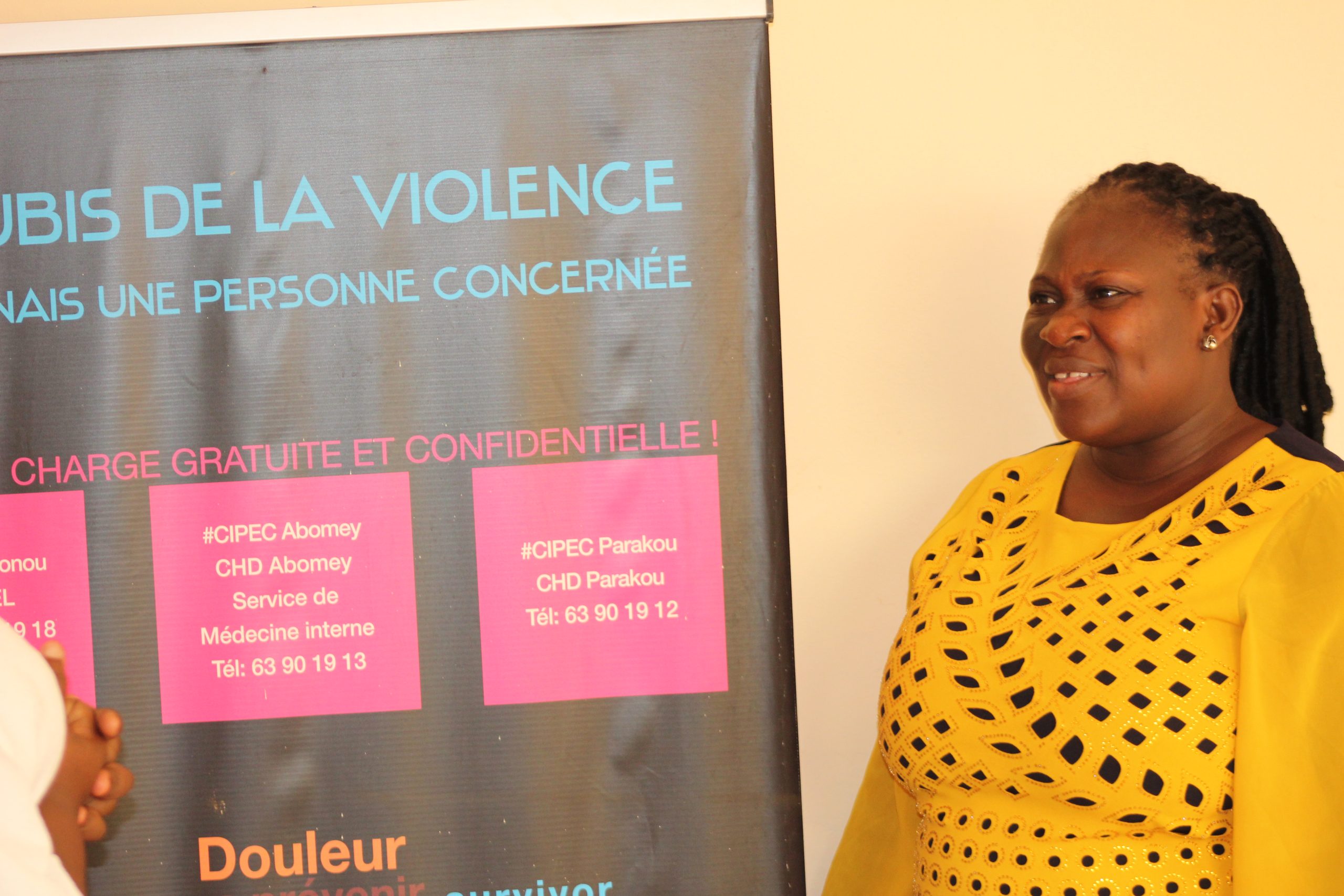
“These women all have potential. They just need a little support to enhance their abilities and to face their situations,” Georgine continues. “They will contribute a lot to the community; they just need a little lift. In many cases they do not realize that other means of support (such as medical care) already exist for them. For me, I am happy that we will begin life skills training. We can see their self-confidence already growing.”
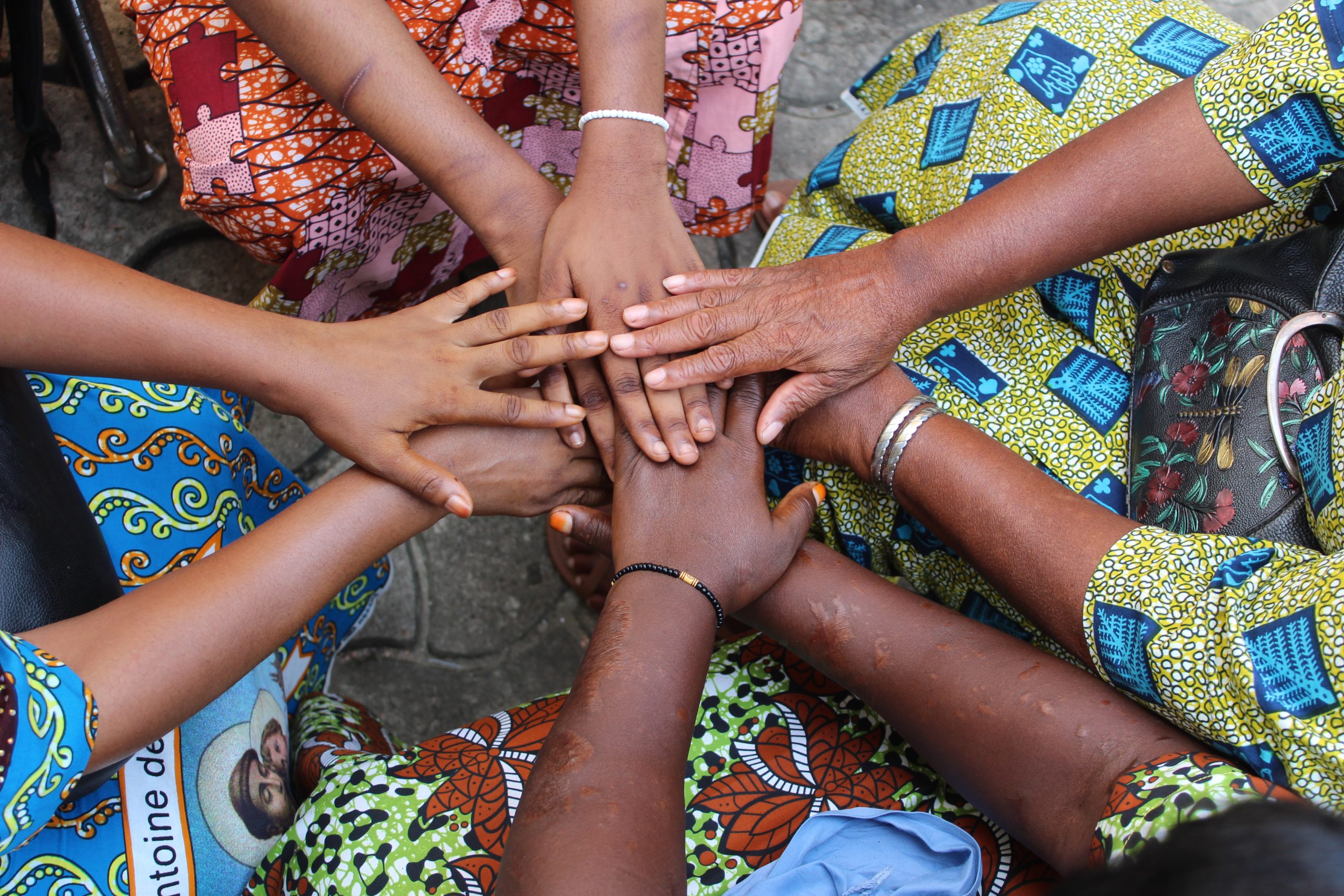
“They are seeing a new way to live; they don’t simply have to turn to their husbands when they need support or money,” says psychologist Etienne Affodo, who counsels the Abomey participants. “The first impact will be on family dynamics. And the community will be aware of this change. Program activities to build community awareness will help with community acceptance of the change.”
After the weeklong life skills training this summer, training will follow on specific income-generating activities, including how to manage a small enterprise and even e-commerce, and continue into the fall. It is anticipated that mentoring and other types of support will continue for some months after that.
